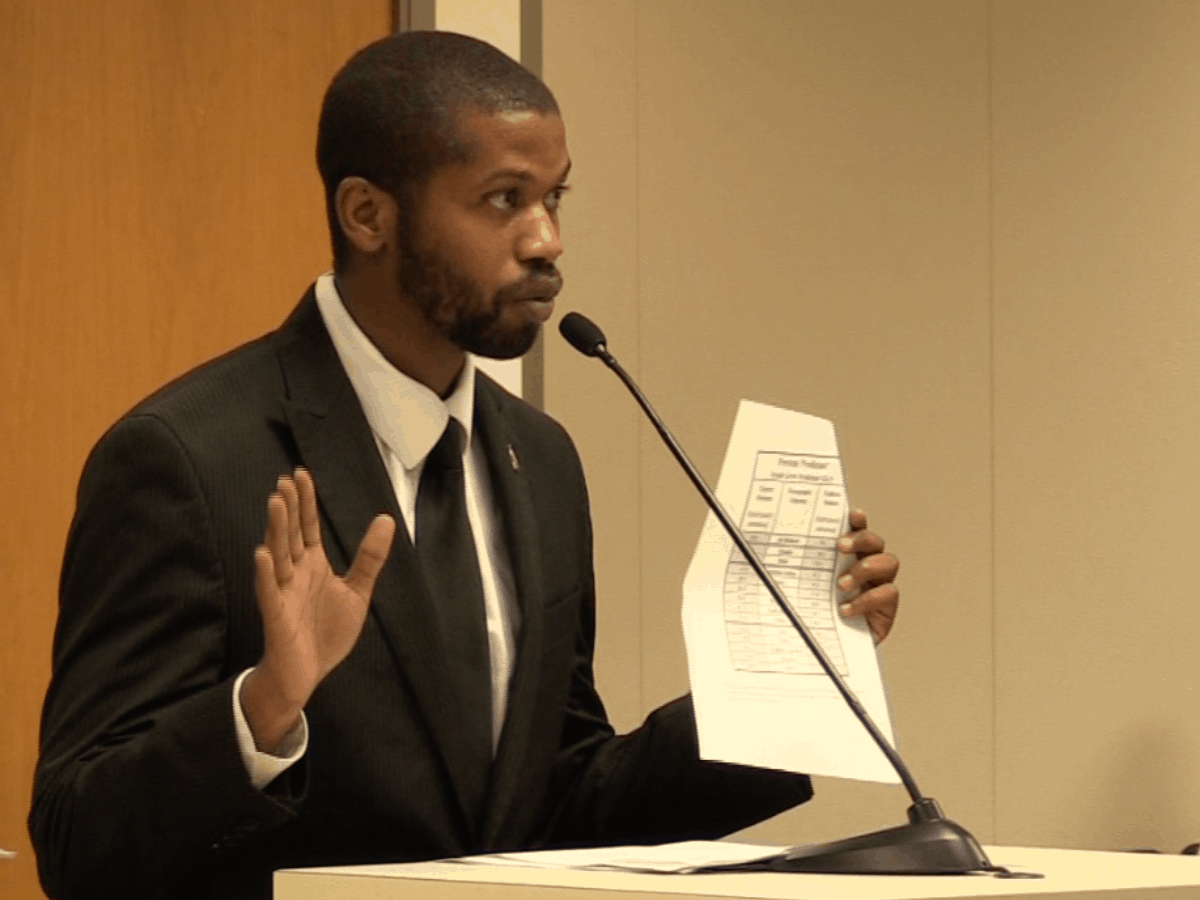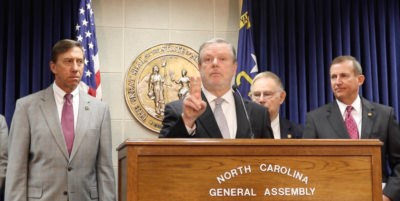

The Achievement School District bill cleared the House K-12 Education Committee Wednesday with an 18-11 vote.
The bill — which was the focus of a House Select Committee prior to session — is the brainchild of Rep. Rob Bryan, R-Mecklenburg. It underwent something of a metamorphosis as it passed through the House Select Committee, becoming in the end more like three bills in one. Go here, here, here and here to read our coverage of Achievement School Districts (ASD) and get a sense for how it’s changed.
The actual Achievement School District portion of the bill would allow a pilot program that would take five of the state’s lowest-performing schools and put them into a state-run ASD headed by a superintendent of the State Board of Education’s choosing. The SBE would also have the power to possibly choose for-profit charter operators to run the schools.
Research presented to the House Select Committee that investigated ASDs indicated that, so far, they have not been successful in neighboring Tennessee, a state N.C. lawmakers looked to when considering this pilot. However, the research had more favorable things to say about Innovation Zones, which are similar to ASDs but remain under local control while giving schools in them charter-like flexibility. One of the researchers who presented to the House Select Committee also speculated that the comparable success of Innovation Zones might be due to the threat presented to local districts by the ASDs.
In this final bill, Innovation Zones also have a place. For starters, a 5-school Innovation Zone will be started in Charlotte-Mecklenburg Schools made up of Project LIFT and Beacon Initiative Schools. Then, any district that ends up turning over a school to the Achievement School District has the option of also turning three of its other continually low-performing schools into an Innovation Zone. Finally, the bill allows the State Board of Education to take applications for a 3-year pilot from up to two local boards of education to create a 3-school Innovation Zone for low-performing schools. The districts awarded those applications would not have to have turned over a school to the ASD.
A third part of the bill would allow the State Board to allow up to five continually low-performing schools around the state to implement a principal turnaround model. In this model, a local board of education replaces the principal of a school with one who has a proven track record of being able to turn around a low-performing school.
As expected, this bill garnered both support and opposition, with people on both sides of the issue speaking at the House K-12 Education Committee Wednesday.
Mark Jewell, vice president of the North Carolina Association of Educators, told lawmakers the idea of an ASD is “unproven at best.”
“In states like Tennessee, the data has been presented to you and shows very questionable results,” he said.
Kristopher Nordstrom, formerly of the General Assembly’s Fiscal Research Division, spoke on behalf of the North Carolina Justice Center and noted a number of concerns, not only with the notion of ASDs but with the bill itself. He said it had insufficient governance oversight, that the language used in the evaluation portion of the bill was “problematic,” and more that you can see in this blog post he put up on The Progressive Pulse, a blog of NC Policy Watch, which is associated with the Justice Center.
“ASD’s have proven not to work as a concept, and this particular bill, it’s less likely to work given (its) problems,” he said.
But then there were adamant supporters like former Rep. Marcus Brandon, now executive director of education advocacy organization CarolinaCAN, who said an ASD could be a spur for low-performing schools to improve.
“If people do not like Achievement School Districts, the best part about this bill is you can do everything you can not to become one,” he said.
And Rep. Cecil Brockman, D-Guilford, who is not a member of the House K-12 Education Committee but was a member of the House Select Committee that studied the issue, said everybody agrees on most of the bill and the sticking point is the charter aspect inherent in the ASD portion. He also pointed out African-American students’ poor achievement levels in traditional public schools and challenged the notion that the status quo is sufficient.
“African Americans are not doing as well in this system for whatever reason,” he said. “And this bill is a good bill that tries to use every tool in the toolbox.”
NC Policy Watch reported the questionable addition of certain members to the House K-12 Education Committee this week, saying the passage of the bill: “…came two days after House Speaker Tim Moore approved a handful of last-minute appointments to the House Education Committee, including the bill’s co-sponsor, Rep. John Bradford III, a Republican from Mecklenburg County, raising questions of whether the appointments were made to ensure the bill’s passage this week.”
In studying the document NC Policy Watch linked to, it appears true that Bradford, R-Mecklenburg, was added on Monday. The three other additions appear to have been appointed early last week.
Rep. Craig Horn, R-Union, one of the chairs of the House K-12 Education Committee, said he didn’t think additions to the Committee were an attempt to stack the deck in favor of the ASD bill.
“I see that I’ve got Republicans that voted no and Democrats that voted yes,” he said. “So, I would not put any credibility at all to the notion.”


